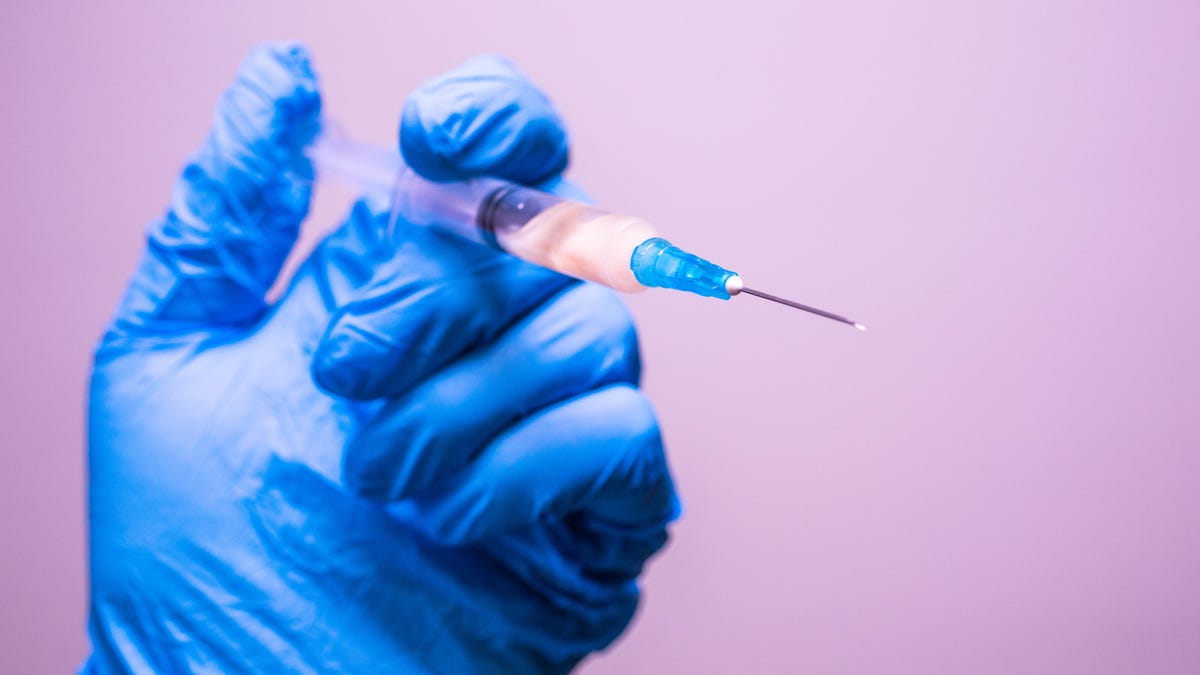US officials call for pause on Johnson & Johnson vaccine rollout due to rare clotting problems
Six women under age 50 developed rare blood clots within two weeks of vaccination, adverse effects that "appear to be extremely rare," the officials say.

Health agencies are investigating the Johnson & Johnson coronavirus vaccine after six recipients developed blood clots. Nearly 7 million doses have been administered in the US.
US health officials on Tuesday recommended that the rollout of the single-dose Johnson & Johnson coronavirus vaccine be paused in the US after six people developed rare blood clots within two weeks of vaccination. The Centers for Disease Control and Prevention and the Food and Drug Administration are reviewing the data. Nearly 7 million doses of the Johnson & Johnson vaccine have been administered in the US, according to the agencies.
The agencies noted that the "adverse events appear to be extremely rare," but recommended the pause until their investigations are complete. In a media briefing, officials emphasized that it isn't a mandate.
"In these cases, a type of blood clot called cerebral venous sinus thrombosis (CVST) was seen in combination with low levels of blood platelets (thrombocytopenia)," the agencies said in a joint statement. "All six cases occurred among women between the ages of 18 and 48, and symptoms occurred 6 to 13 days after vaccination."
One of the women died and another has been hospitalized in critical condition, The New York Times reported.
"We're recommending a pause out of an abundance of caution, but on an individual basis a provider and patient can make a determination whether or not to receive the vaccine," Peter Marks, director of the FDA's Center for Biologics Evaluation and Research, told reporters.
People who've received the J&J vaccine and who then develop severe headache, abdominal pain, leg pain, or shortness of breath within three weeks after vaccination should contact their health care provider.
New York state is following the agencies' recommendation, Health Commissioner Howard Zucker said in a release. All appointments scheduled for Tuesday will get the Pfizer vaccine instead. Connecticut, Georgia, Illinois, Indiana, Maine, Maryland, Massachusetts, New Jersey, Nebraska, Ohio, Texas, Utah, Vermont and Virginia are among states taking similar measures, the Times noted.
"The safety and well-being of the people who use our products is our number one priority," Johnson & Johnson said in a statement acknowledging US health officials' recommendation. "In addition, we have been reviewing these cases with European health authorities. We have made the decision to proactively delay the rollout of our vaccine in Europe."
The company later said it would also pause vaccinations in all Janssen COVID-19 vaccine clinical trials while it worked on updated guidance for investigators and participants.
The recommendation won't have "a significant impact" on President Joe Biden's vaccination plan, the White House noted in a release, with the Johnson & Johnson vaccine making up less than 5% of the recorded shots in the US to date. Between the Pfizer and Moderna alternatives, there is apparently enough supply to continue the current pace of 3 million shots per day.
A CDC advisory committee met Wednesday and decided to vote on a recommendation next week, according to a report by The New York Times.
During a briefing at the the White House on Tuesday, Dr. Anthony Fauci said the pause will allow the FDA and CDC to further investigate the cases of blood clots, noting that he expects the process to take "days to weeks rather than weeks to months."
Fauci, who is director of the US National Institute of Allergy and Infectious Diseases and chief medical adviser to the president, also said the pause isn't related to the efficacy of the J&J vaccine.
"So someone who maybe had it a month or two ago would say, 'What does this mean for me?'" Fauci said. "It really doesn't mean anything. You're OK, because when you look at the time frame of when this occurs, it's pretty tight, from a few days, six to 13 days from the time of vaccination."

